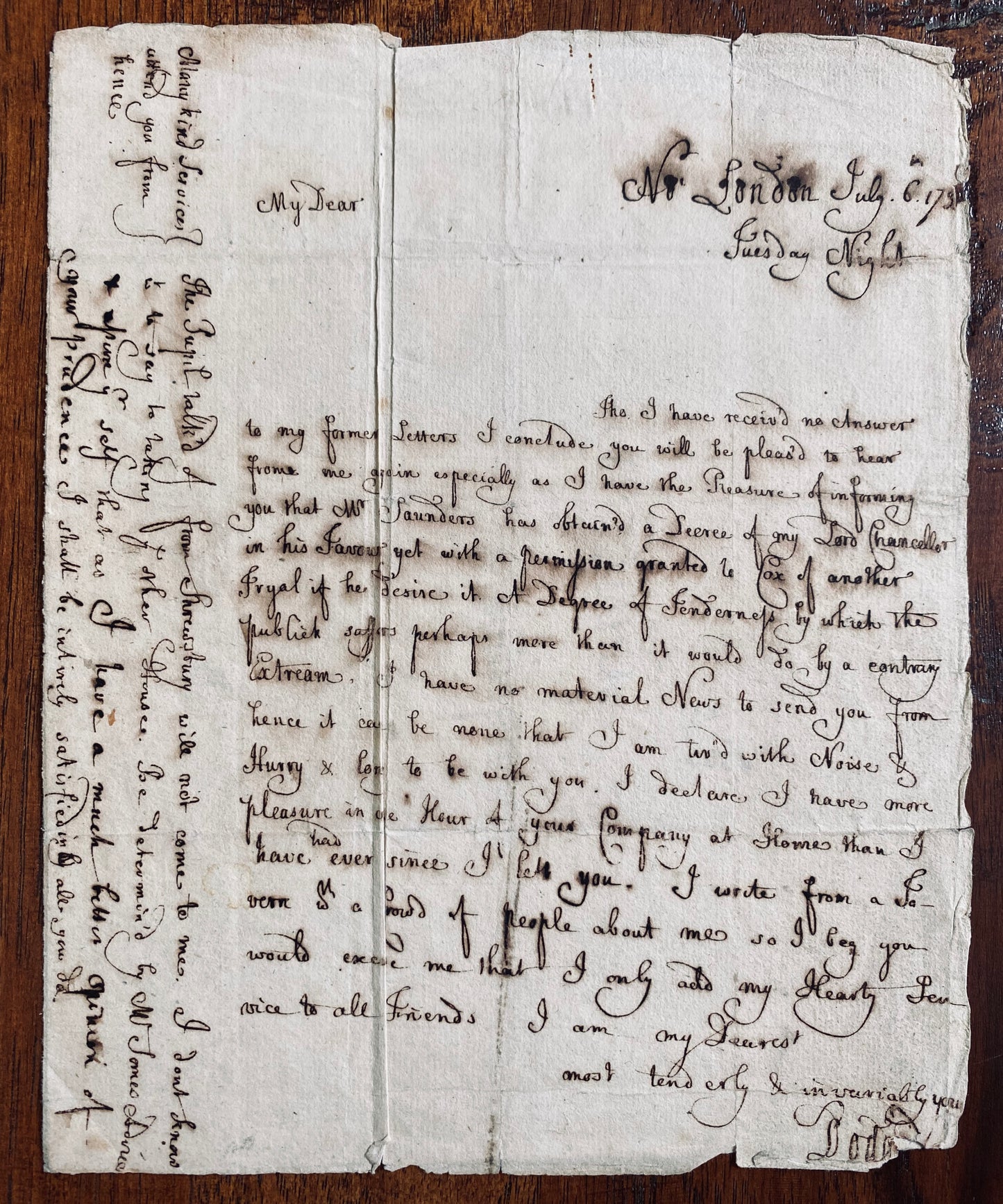Specs Fine Books
1730 PHILIP DODDRIDGE. A Pastor's Love-Letter to his Wife. Hymnist, Friend of Whitefield, and Converted William Wilberforce.
1730 PHILIP DODDRIDGE. A Pastor's Love-Letter to his Wife. Hymnist, Friend of Whitefield, and Converted William Wilberforce.
Couldn't load pickup availability
A very rare and attractive letter by Philip Doddridge [1702-1759]. The youngest of twenty children, his father was a dealer in oil and pickles; a natural pairing. He early sensed grace and a call to the ministry. His first and only charge was Northampton, though he had offers from many quarters. In 1730, he was married and from all records was a doting husband. He was friends with George Whitefield, in fact taking quite a bit of heat for giving the "field-preacher" a legitimate pulpit to preach in. He authored over 350 hymns. Nothing was of more influence though than his classic, The Rise of Progress of the Religious Life. It perfectly articulated the "New Birth" and spiritual life articulated by George Whitefield and John and Charles Wesley. It was while reading it that William Wilberforce became a Christian. The book has been in print almost without a stop since its first printing.
The final number of the date is a bit chipped, but between 1731 and 1736.
"London. July 6th, 173X
Tuesday Night
My Dear,
Tho I have receiv'd no Answer to my former Letters I conclude you will be pleas'd to hear from me again especially as I have the Pleasure of informing you that Mr. Saunders has obtain'd a Decree of my Lord Chancellor in his Favour yet with a permission granted to Cox of another tryal if he desire it. A Degree of Tenderness, by which the publick softens perhaps more than it would do by a contrary extream. I have no material News to send you. From hence it can be none [known] that I am t*** with Noise & Hurry & long to be with you. I declare I have more pleasure in one Hour of your Company at Home than I have had ever since I left you. I write from a Tavern with a crowd of people about me, so I beg you would excuse me that I only add my hearty service to all Friends,
I am my Dearest, most tenderly & invariably yours, Doddridge. "
Share


